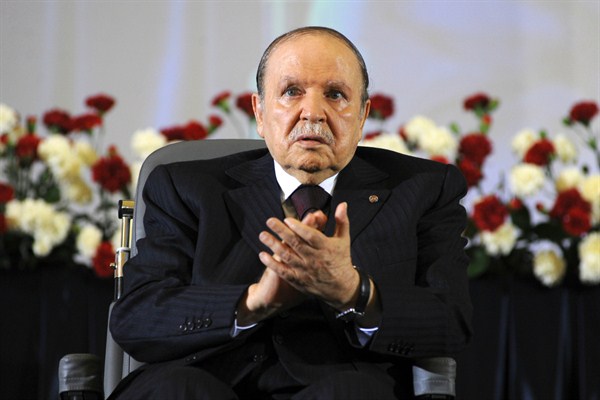The ailing health of Algeria’s aging president, Abdelaziz Bouteflika, commonly leads Algeria-watchers to assess the prospects for regime continuity and the risks of political instability in what amounts to an interregnum. Both make up chapters of the country’s recent history. Over the past 25 years, Algerians lived through 10 traumatic years of insurgency and counterinsurgency, sometimes called the Dark Decade that shook the country to its foundations from 1991-2002, followed by a decade and a half of peace under Bouteflika.
Bouteflika, along with his predecessor Liamine Zeroual, negotiated the laying down of arms and reconciliation—albeit an imperfect one—among armed groups that brought the bloody conflict to a close, thereby restoring the centrality of the state and the apparent necessity of the status quo. To be sure, much of the state’s post-conflict political capital has been embodied in Bouteflika himself; he is widely credited with delivering Algeria to its prized normalcy and has maintained the presidency since 1999.
However, since the mid-2000s, this political capital has dwindled due to spreading perceptions that the president and his clan have bankrupted the country. Bouteflika’s reputation as a savior was perhaps dealt its deathblow when he stood for, and won, a fourth term in April 2014, despite his advanced age and visibly weakened physical state. In response, several chief members of his circle defected and ranking officials of the Department of Intelligence and Security (DRS) opposed his mandate. Since then, the wheelchair-ridden president has become the subject of satire, ridicule and resentment, particularly in the heavily populated urban centers around the north.

